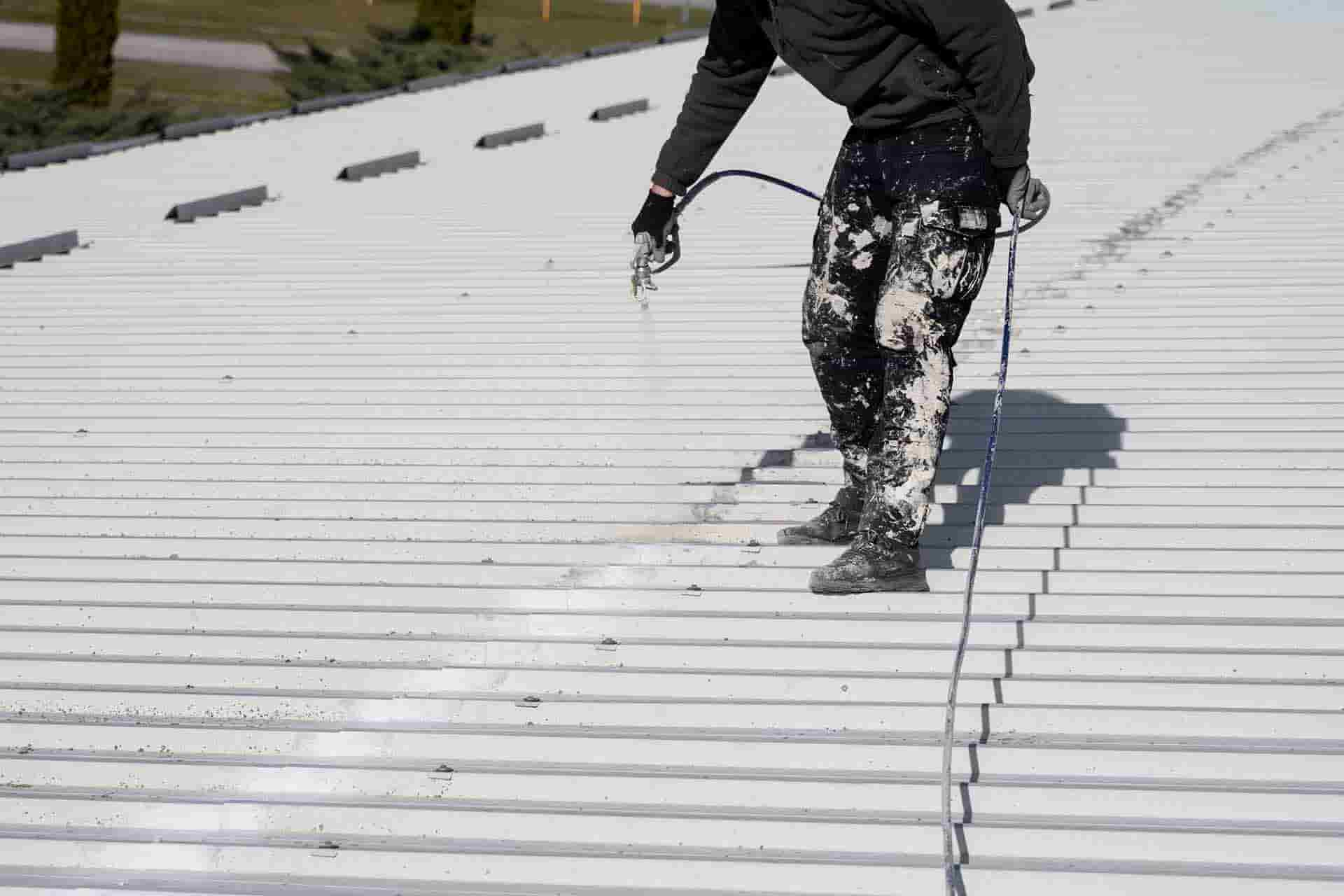How Do You Prep a Roof for Coating?

October 2025
Before applying any type of roof coating, proper preparation is essential to ensure long-lasting protection and performance. If you’re wondering how do you prep a roof for coating, this guide will walk you through every step, so you can avoid common mistakes and get professional results.
Whether you’re a property owner in British Columbia or a contractor working on a commercial or residential roofing project, this article covers everything you need to know about surface prep for silicone, elastomeric, and acrylic coatings.
Why Roof Prep Is Critical for a Successful Coating Job?
Skipping roof prep is the fastest way to ruin a coating job. Coatings are only as effective as the surface they adhere to. Dirt, moisture, loose material, and old coatings can all prevent proper bonding.
Prepping your roof the right way:
- Extends the life of the coating
- Helps seal leaks more effectively
- Reduces maintenance costs over time
- Ensures warranty compliance from manufacturers
Step-by-Step: How Do You Prep a Roof for Coating
Below is a detailed prep checklist to follow before applying any kind of roof coating.
1. Inspect and Assess the Roof Surface
Start by walking the entire roof surface to check for:
- Cracks, splits, or blisters in the membrane
- Loose flashing or seams
- Standing water or drainage issues
- Existing coatings that are peeling or bubbling
Take photos and note all problem areas for repair before cleaning or coating.
2. Clean the Roof Thoroughly
You can’t apply the coating without a clean and dry surface. Most manufacturers recommend:
- Power washing the roof at 2,000–3,500 PSI
- Using a biodegradable cleaner or degreaser
- Scrubbing off algae, moss, or mildew
- Removing all dust, dirt, and oil
Let the roof dry completely, this may take 24 to 48 hours depending on the weather.
3. Repair and Patch Damaged Areas
Before any coating is applied, make sure to:
- Replace loose or rusted fasteners
- Reseal seams with compatible tape or mastic
- Fill small cracks or blisters with roofing cement
- Remove and re-flash areas with deep damage
Repairs must be fully cured and dry before coating begins.
4. Prime the Surface (If Required)
Certain surfaces, like metal roofing systems or built-up tar and gravel roofs, may require a primer to improve adhesion. Check the product label or consult the coating manufacturer.
How to Apply Elastomeric Roof Coating on Metal Roofs?
Elastomeric roof coatings are popular for metal roofs due to their flexibility and weather resistance. Here’s how to apply one:
- Prep the roof as described above
- Apply base coat using a roller or sprayer
- Allow it to dry for 4–8 hours (depending on the weather)
- Apply top coat in a perpendicular direction to base coat
- Let it cure fully before foot traffic or rain exposure
Tip: Always apply the coating in the morning or late afternoon to avoid flash drying.
How to Apply Silicone Roof Coating?
Silicone coatings are highly reflective and ideal for areas with frequent rain. Follow these steps:
- Clean and dry the surface
- Use a primer if the substrate is EPDM or smooth BUR
- Use a high-quality silicone specifically rated for your roof type
- Apply in 1–2 thick coats with a roller or sprayer
- Check for coverage thickness (typically 20–30 mils)
100% silicone roof coating provides superior UV resistance and water sealing, but is slippery when wet, so consider adding granules for walkability.
FAQ: Common Questions About Roof Coating Prep
Q. Will elastomeric roof coating stop leaks?
Yes, but only if the roof is properly prepped and the leaks are not structural. Elastomeric coatings can seal small cracks and pinholes, but major damage must be repaired first.
Q. What’s the best roof coating for a flat roof?
That depends on your climate and roof type. Silicone roof coating is great for wet climates, while elastomeric coating offers durability in varied temperatures.
Q. Can I coat a mobile home roof?
Absolutely. Just ensure proper roof preparation, cleaning, and product compatibility. A mobile home roof coating guide can provide more specific tips.
Need Help with Roof Coating in British Columbia?
If you’re in British Columbia and want expert help on roof coating prep or application, trust the pros at BCheemaroofing. We offer complete roofing services from inspection and cleaning to full coating application.
Explore our roof coating services here or call us for a free estimate today!




